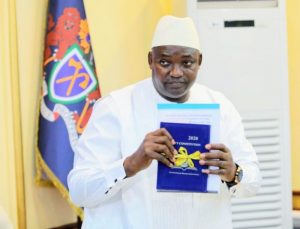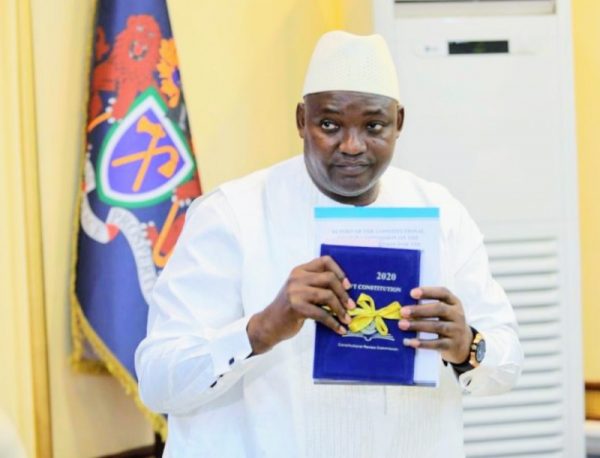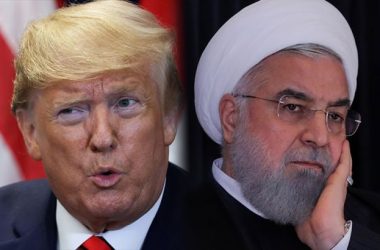
Constitution is debated and contested before it can gain political endorsement.
It is invoked to disperse power within the state so as to prevent cronyism. It is invoked to preserve the independence of judiciary. And invoked to claim fundamental rights such as political right.
It goes without saying that the aspirations in the draft constitution would not come to actualisation if it fails to gain political endorsement.
while the draft constitution gives some considerations to the independence of Judiciary and appointment of Ministers because of their constitutional significance; provisions such as the term limit and disqualifications for election as President are factors that would undoubtedly determine the fate of the draft constitution.
For this reason, it is reasonable to build consensus among the divergent political standings in attempt to attain popular endorsement of the constitution, without which the constitution would be decimated by politics. The thought of a politics decimating law seems unconceivable in particular at this very critical time of our transition to a functioning democracy. Law is not and cannot be a substitute for politics.”
Therefore, to maintain the supremacy of law over politics, the draft constitution must be politically neutral; in that it must not unreasonably restrict political right of any citizen, a fundamental right entrenched by the same constitution. It is illogical to entrench a right in one hand and unfairly take it by another hand.
I believe that the constitution would not attain popular endorsement, if the belligerent political and religious groups continue to maintain inflexible positions. This, ln my view, would render the noble exercise undertaken by CRC plainly futile; and a complete waste of public money.
While term limit is an important mechanism to prevent self-perpetuation in power and also important to break cycle of cronyism, it must not be used to generate a political outcome that may be so undesirable to the political protagonists. Electorates are best placed to produce decisive political outcomes not backdoor mechanism crafted by legal experts pressured by populist opinion.
As a positivist as well as a democrat, it is objectionable to give retroactive effect to term limit in the draft constitution; which will have impinging effect on the term limit of the current President. Generally retroactive application of law will unfairly impose liability on individuals where no such liability existed previously. This is contrary to the principle of rule of Law as individuals should not be penalised under ex post facto laws.
Although retroactive law may be seen as a ‘necessary evil’, especially under unusual conditions, there are no such conditions in The Gambia to warrant such arbitrary legislation. Retroactive legislation is undemocratic as its effects tend to fall before the actual democratic process, making it incompatible with the values of a democratic society.
On the appointment of the Ministers under Section115 (The Appointment of Ministers), in my view, cabinet positions are political positions; as agents of their elected political leader, they must retain the confidence and trust of the leader to enable them to work collectively on the principle of collective responsibility. To that end, the leader must not be constrained politically to make such appointments.
At times the very feebleness of successive governments seemed to have emboldened advocates for curtailment of the Executive powers. While this may as a necessity to avoid concentration of power in the hand of a President in order to prevent creation of clique of cronies at the centre of Government; it is unnecessary to create political obstacles that could impede government’s ability to conduct its business efficiently.
I believe subjecting the appointment of the Ministers to a confirmatory vote of NAMs blur the separation of power principle because this will give the NAMs a leverage to control the Executive for no good reason to advance their own political ends. Such process will in no doubt be overshadowed by political bickering and dramas; without no useful purpose for good governance, effectiveness and efficiency.
Events that preceded the recent appointment of the Ombudsman speak for the delay that is likely to be caused by such process if applicable in the new constitution. Of course, it is important for NAMs to confirm appointees in certain key positions, such as the position of Ombudsman and Head of Civil Service or even DPP. But it is legally unsound to apply the same principle to ministerial appointment. It begs the question if the President has the unfettered powers to appoint the VP, why not his or her Ministers. It seems inconsistent and illogical to appoint ministers through a different mechanism.
The President must have the necessary powers to manage its Ministers to increase efficiency in the Government. This does not preclude merit-based assessment of the ministers before their appointment. A competent President who follow judiciously merit-based assessment is the one to prevent cronyism. In my view, the select committee mechanism is sufficient to allow NAMs to hold Ministers accountable. Therefore, it is prudent for the President to hire and fire Ministers as he/she deems fit.
Indeed, the prominence given to the separation principle of powers could well be described as a silent revolution, capable of enhancing effective checks and balances within the state. This is necessary to unshackle the Gambia from decades of malpractices and bad governments since independence. Separation of powers in its simplest sense has the objective of ensuring that the exercise of state powers is subjected to adequate scrutiny at different levels of the state. This will in no doubt promote accountability and transparency within the state.
In relation to the weight of presidential pardon on criminal conviction, it is almost with certainty that 88. (5) has made presidential pardon provided by 94 redundant in such a way it is impossible to outflank judicial decision as it state this: The President shall neither have nor exercised any power to – (c) alter the decision or judgement of a court in any proceedings.
While 942(c) subsections (1) (e) allow Presidential pardon to have effect on the punishment of the offence, it does not nullify judicial decision that led to that conviction in respect of principle of separation of powers. It is worth noting that the wording on 94 is loose and indecisive thereby rendering it redundant in the face of section 88 (5).
I think it is right for society to rehabilitate offenders for the greater benefit of society. Thus, the law must not unfairly disqualify people without reasonable justifications. The point of justice is fairness; without fairness there can be no justice and no democratic society. This explains why section 94(2) (b) only bars people with certain criminal convictions as this: (i) an offence involving dishonesty or immoral conduct; or (ii) any other offence for which he or she has been sentenced for a term of imprisonment of twelve months or more. Clearly, this specifies convictions that would be captured, therefore allowing those who were convicted of politically motivated offences to rightfully participate in a political process. That is right and compatible with the principle of justice.
At the heart of administration of justice, legal protection can only be effective if those who ensure its efficacy are truly independent. This, in my view, requires judges to be financially sufficiently compensated to eliminate implicit threat of financial consideration, capable undermining the independence of judiciary. In practice, there must be sufficient financial reward for judicial positions to attract highly skilled and experienced applicants. The suggestion that judges are unjustifiably remunerated in the draft constitution is unfounded and misconceived understanding how Judiciary independence is protected and preserved. In a modern democracy, judiciary must be seen to have the capacity and willingness to adjudicate in disputes with no reason to fear of financial and personal consequences. So, it is right and proper to reward the hard work and remarkable academic achievements of judges for the interest of justice.
It is true to say that, the drafters have created a seminal instrument which may transform The Gambia into fully functioning democracy if adjudication and administration of the law is not politicised. But to attain political endorsement it must be acceptable to political protagonists on both side of the argument. Therefore, we must be resolute in our efforts to ensure that any provisions which expressly deny the exercise of fundamental rights guaranteed by the same constitution are reviewed/ amended, in the furtherance of our democratic society.
Certainly, a constitution built upon political neutrality is the one likely to attain popular endorsement; and the one capable of maintaining the supremacy of higher laws.





